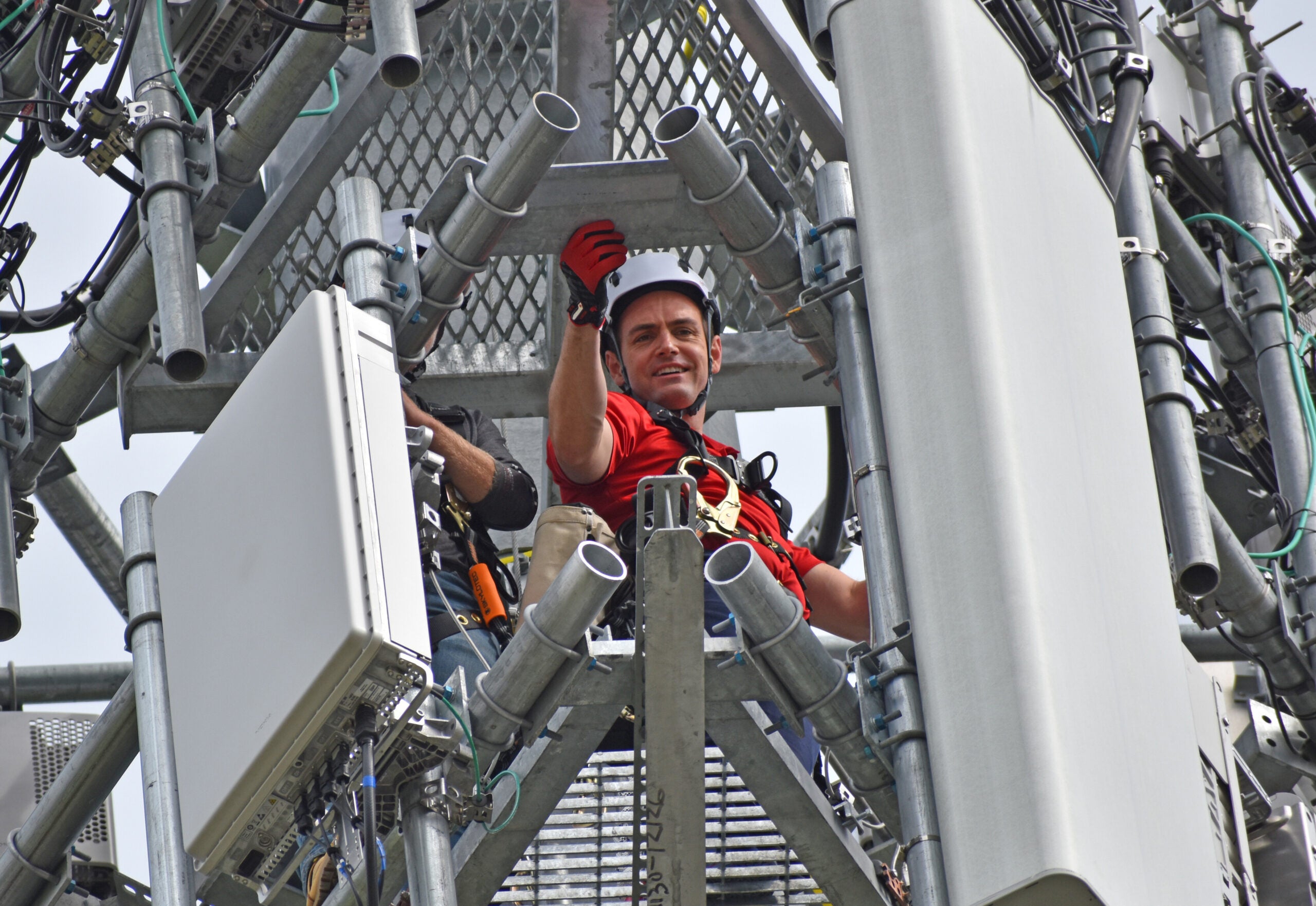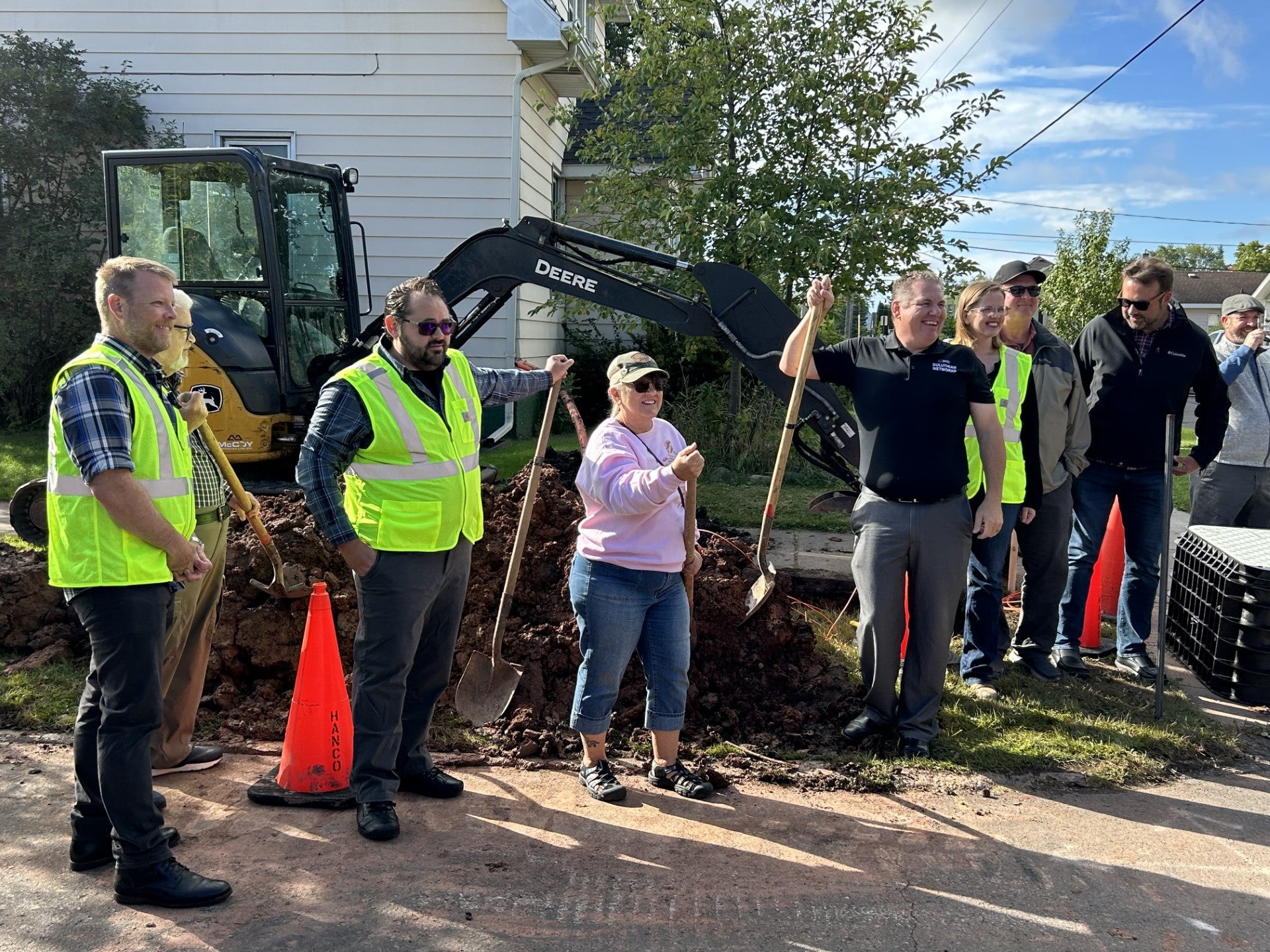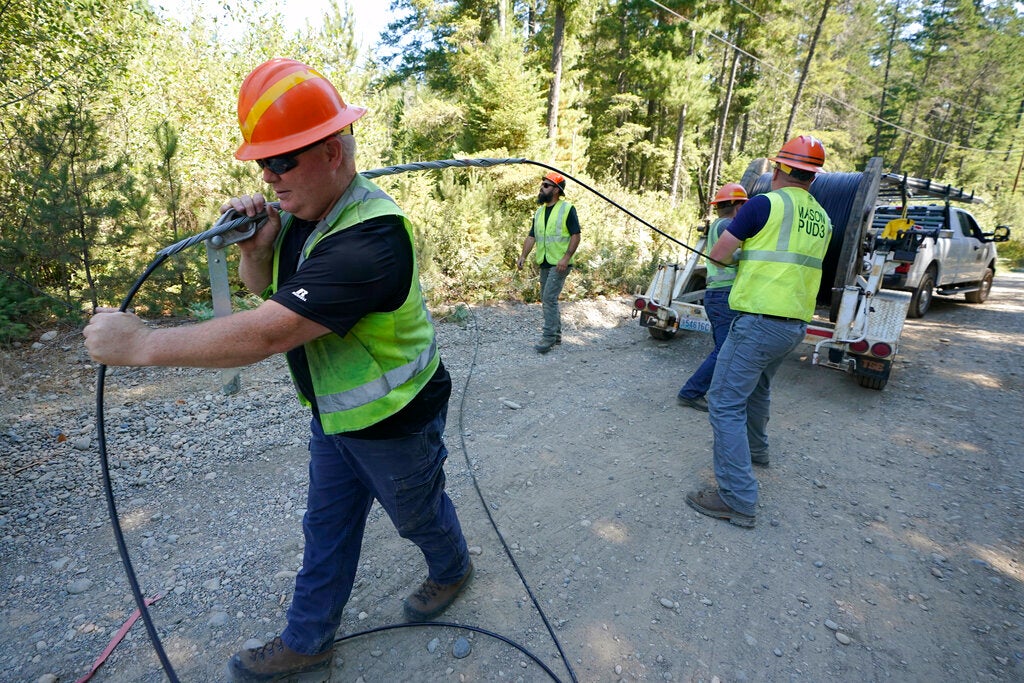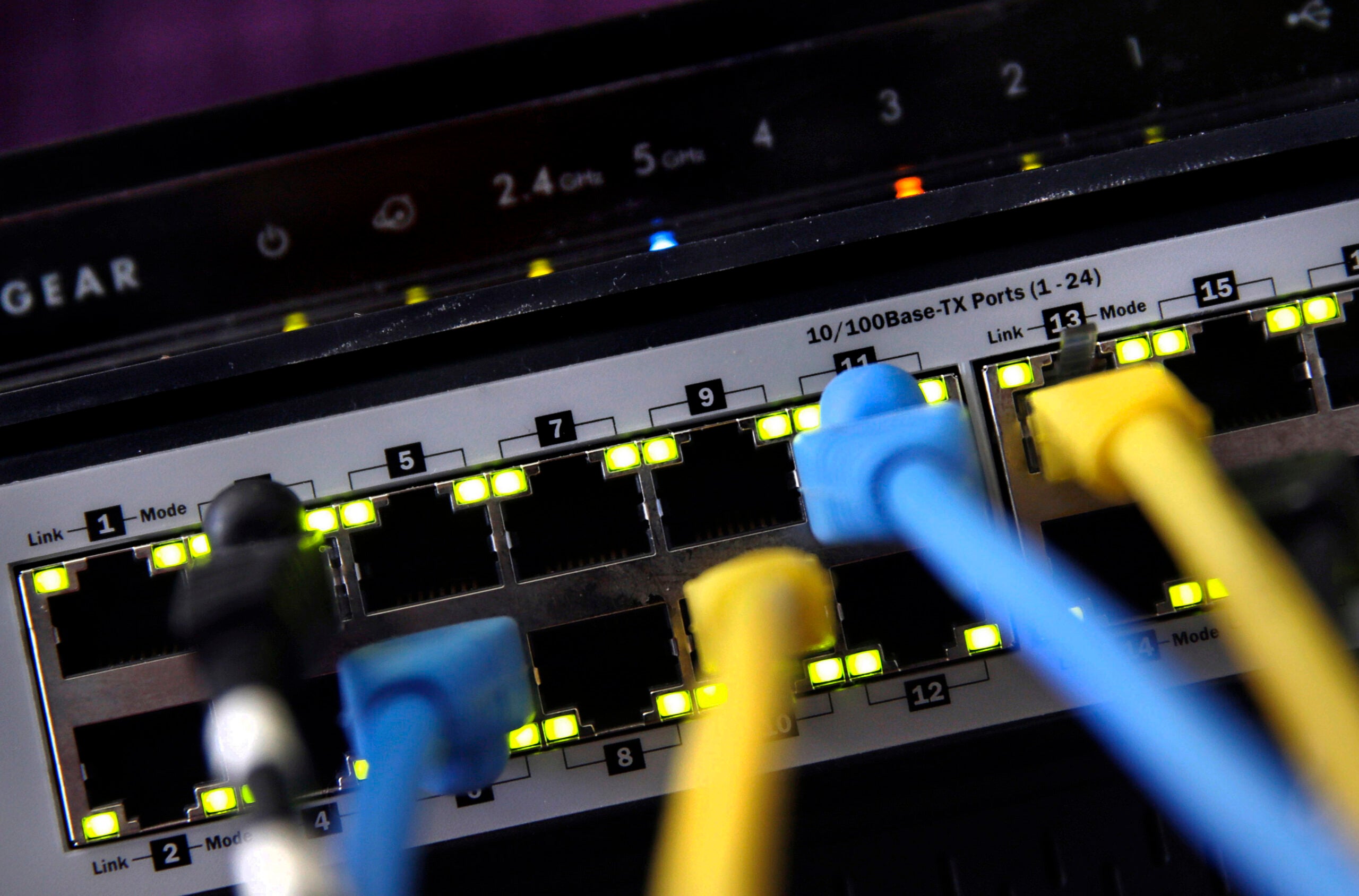A few months ago, Federal Communications Commission Commissioner Brendan Carr made a bet with U.S. Rep. Mike Gallagher that the representative wasn’t brave enough to climb a cell tower.
The federal lawmaker proved the commissioner wrong during a stop in his district Thursday, when they both climbed a 110-foot T-Mobile cell tower in the village of Howard.
“I couldn’t back down from the dare,” said Gallagher, R-Green Bay. “I wanted to face my fears.”
News with a little more humanity
WPR’s “Wisconsin Today” newsletter keeps you connected to the state you love without feeling overwhelmed. No paywall. No agenda. No corporate filter.
Besides taking the opportunity to win a bet, the officials used their stop near Green Bay to raise awareness for broadband issues. Gallagher said the climb gave him a better understanding of “all the things we take for granted.”
“When you turn on your phone, you expect the Internet to work, you expect to be able to download anything you want at a moment’s notice, to stream whatever you want,” he said. “Well, it depends on infrastructure like this, and it depends on human beings that go up and repair this stuff when it’s broken.”
Wisconsin will receive $1.1 billion for broadband expansion as part of the federal Infrastructure Investment and Jobs Act — better known as the bipartisan infrastructure law — signed by President Joe Biden. In Wisconsin, 253,000 homes and small businesses either had no high speed internet or lacked access to “minimally acceptable” speeds, a Biden Administration spokesperson told Wisconsin Public Radio in June.
But Gallagher voted against the legislation in 2021. He said the bill came as the federal government was adding “historic levels” to the national debt and criticized some of the policy priorities funded in the bill.
“We have a fiscal crisis that we keep delaying because we’re afraid to make the hard decisions necessary to fix it,” Gallagher said. “That’s one issue. The other is, if you dig into the infrastructure bill, a lot of it was not infrastructure traditionally defined in terms of roads, bridges, even rural broadband — it’s all Green New Deal projects.”
The Biden Administration has said investments in the law address climate change. They say it strengthens America’s resilience to extreme weather and supports building a clean power grid. Earlier this month, Vice President Kamala Harris was in Kenosha County to promote the infrastructure law’s impact on broadband in the state, and to call attention to growth of manufacturers that build products that support broadband expansion.
Joe Oslund, communications director for the Democratic Party of Wisconsin, said Gallagher’s climb was a photo opportunity that looks good, but doesn’t deliver for his constituents.
“The reality is that, thanks to President Biden, Wisconsin’s gonna see more than $1 billion in investment in broadband across the state — both rural communities and urban,” he said. “That matters. By not supporting that kind of investment and bringing those dollars home, (Gallagher) is really falling short.”
Now that the bill has become law and funding has been allocated to broadband expansion in Wisconsin, Gallagher said he wants to ensure taxpayer funds for broadband expansion are spent responsibly.
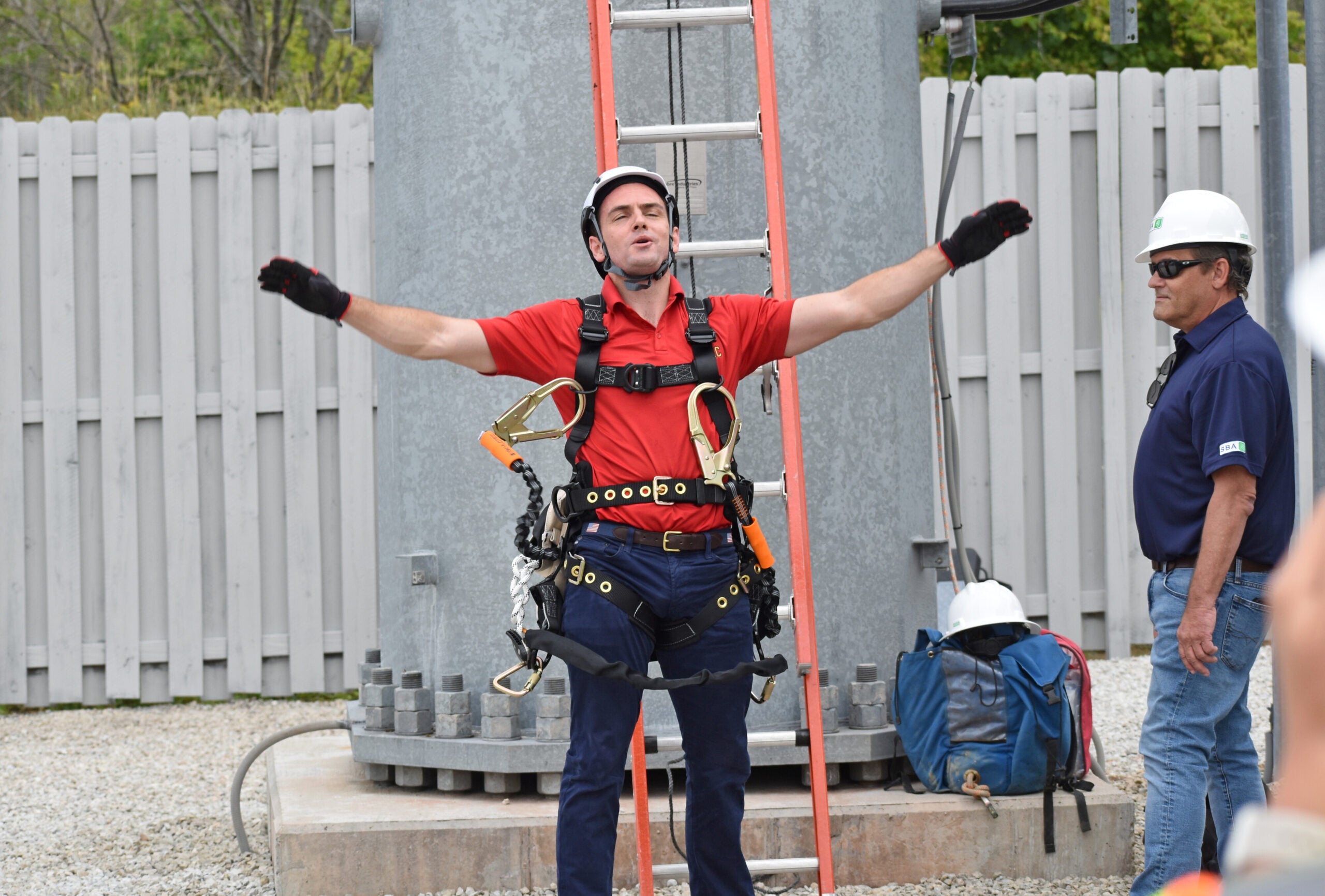
“We have a massive opportunity — particularly after the pandemic — as people are looking to get out of the big cities, decluster from Chicago … and come to a place like Green Bay, which is a smaller-size city, but with a lot of rural areas,” he said. “If we have that connectivity, you can work here, even if you’re working for a big multinational corporation.”
Oslund said Democrats share that vision, but executing it requires major investments like the bipartisan infrastructure law.
“That’s what we’re fighting for, and it’s unfortunate that Rep. Gallagher didn’t show up for that,” he said.
Carr, the senior Republican on the FCC, said Wisconsin is “making good progress” when it comes to connectivity, but it’s still too early to raise the “mission accomplished flag.”
“At this point, if someone down the street from you has new high speed service, it’s meaningless to your own personal life if you don’t have it,” Carr said. “We have the money at this point to truly end the digital divide.”
He said expanding broadband access will require a mix of technology, from fiber optic cable to using fixed wireless internet, broadcast from towers, in areas without fiber infrastructure.
“The challenge is we have to get those policies right to actually deliver for the American people,” Carr said. “It’s vital for our economy.”
The FCC commissioner added that improving broadband access is especially important because “great ideas come from every single zip code in the country.”
“A lot of time to bring your ideas to fruition, you need an internet connection,” he said. “Whether you’re in a downtown metro area or in a rural area, the Internet can be a level playing field whether it’s for school or for work.”
Wisconsin Public Radio, © Copyright 2025, Board of Regents of the University of Wisconsin System and Wisconsin Educational Communications Board.

